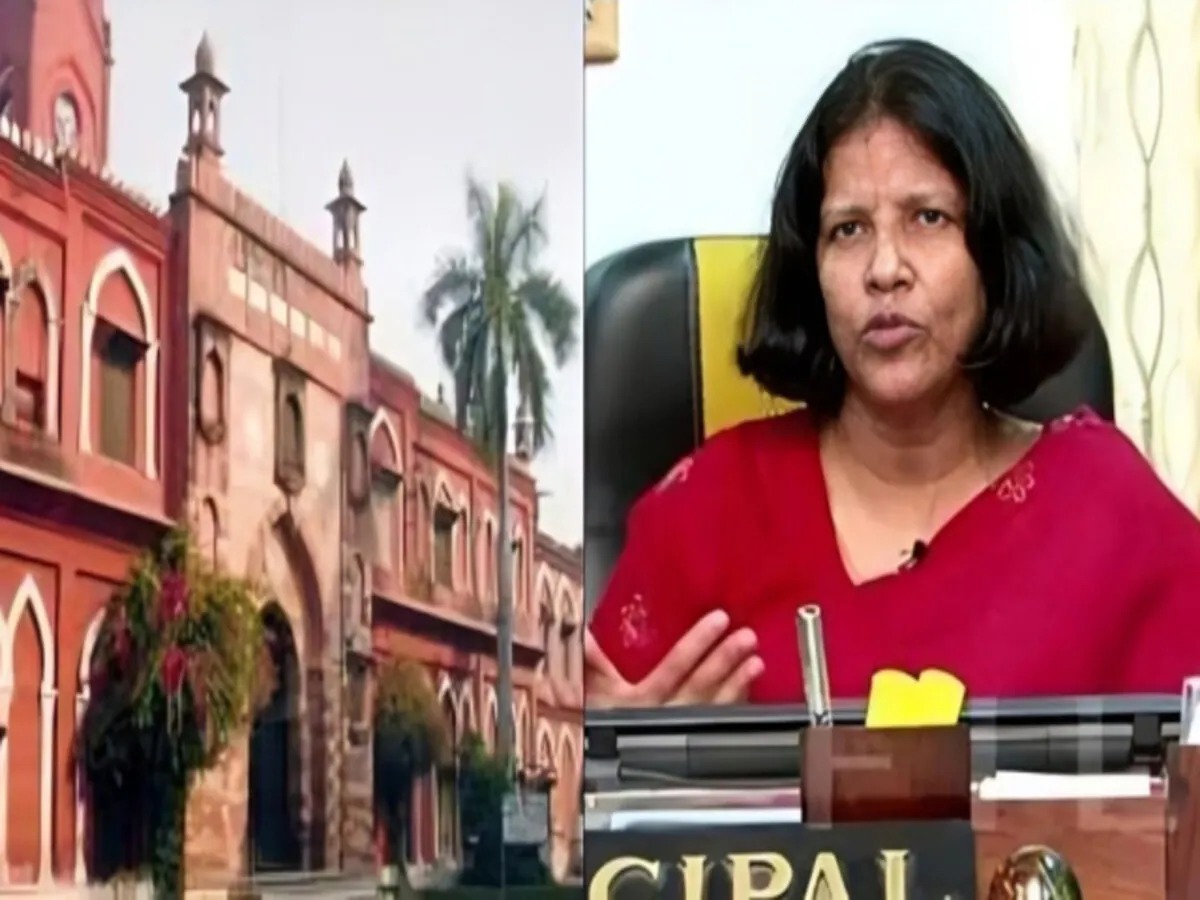
Naima Khatoon: A Trailblazer in Academia and Leadership
Naima Khatoon: A Trailblazer in Academia and Leadership
The AMU Alumna Shines in the World
Dr. Suhaib Ahmad
Aligarh Muslim University (AMU) stands as a paragon of academic excellence and intellectual growth, celebrated for its enduring legacy and rigorous standards. Founded in 1875, AMU has evolved into a prestigious institution that champions progressive values while nurturing a diverse and dynamic student body. Its history is a testament to a commitment to both educational innovation and holistic development.
The university offers a wide spectrum of academic programs, each designed to cultivate critical thinking and leadership skills. AMU’s dedication to fostering well-rounded individuals is reflected in its extensive alumni network, which includes a multitude of influential leaders, acclaimed actors, and renowned scholars. These distinguished individuals exemplify the university’s profound impact across various fields.
One such notable alumna is Prof. Naima Khatoon, an esteemed academician whose achievements underscore AMU’s legacy of excellence. Her career exemplifies the high standards and intellectual rigor that AMU is known for, and she stands as a testament to the institution’s role in shaping influential figures who contribute significantly to society.
In essence, Aligarh Muslim University is not merely an educational institution but a beacon of intellectual advancement, continually shaping future leaders and innovators through its rich academic tradition and commitment to excellence.

In a historic move, President Droupadi Murmu has appointed Professor Naima Khatoon as the Vice-Chancellor of Aligarh Muslim University (AMU), breaking a glass ceiling that has persisted for over a century. Professor Khatoon’s appointment marks a significant milestone as she becomes the first woman to hold the esteemed position in the university’s long and distinguished history.
This groundbreaking appointment follows the tenure of her husband, Prof. Mohammad Gulrez, who had been serving as the acting Vice-Chancellor. Prof. Khatoon’s rise to this leadership role is particularly notable given the context of her appointment, which faced a legal challenge. Last November, a petition was filed in the Allahabad High Court contesting her appointment due to concerns about the impartiality of the shortlisting process, as the committee responsible was chaired by Professor Gulrez.
Despite the legal challenge, the court dismissed the petition, clearing the way for Prof. Khatoon to assume her role. Her appointment represents not only a personal achievement but also a symbolic and substantive advancement for gender representation in academia. As the first woman Vice-Chancellor at AMU, Prof. Khatoon’s leadership is anticipated to bring fresh perspectives and continue the university’s legacy of academic excellence and progressive values.
Over four decades ago, a significant family debate unfolded around Naima Khatoon’s future. At that time, it was highly unconventional for a young woman from Odisha to travel across state lines, especially to Uttar Pradesh, where her brother was pursuing a PhD at Aligarh Muslim University (AMU). The idea of such a journey was met with considerable resistance, particularly from her uncle, who was firmly opposed to the idea.
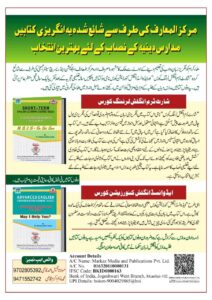
In contrast, Naima’s mother was a beacon of support and determination. She recognized the value of the opportunity and championed her daughter’s ambition. Despite the prevailing societal norms and familial objections, Naima shared her mother’s resolute vision and was unwavering in her decision to undertake the journey.
Naima Khatoon’s determination and her mother’s support were pivotal in overcoming the barriers of the time. This early demonstration of resolve and commitment not only marked a significant personal milestone but also set the stage for her future achievements. Her journey to AMU was more than just a physical move; it symbolized a step toward breaking societal constraints and pursuing academic and professional excellence.
Retired AMU professor Kafeel Ahmed Qasmi, originally from Odisha, vividly remembers Prof. NaimaKhatoon’s arrival in Aligarh in 1977, following her completion of high school. Reflecting on this significant moment, he noted, “She stayed with us for a few days before moving into the hostel. At that time, it was quite rare for an Odia girl to travel to Aligarh for education.”
After earning her doctorate in political psychology from Aligarh Muslim University (AMU), NaimaKhatoon began her academic career at the university’s Department of Political Science in 1988, starting as a lecturer. Her dedication and scholarly contributions were soon recognized, leading to her promotion to the rank of professor in 2006.

Prof. Naima Khatoon, the current Vice-Chancellor of Aligarh Muslim University (AMU), stands as a prominent figure in the academic and administrative spheres. Her appointment to this prestigious role reflects her distinguished career and deep commitment to higher education.
Prof. Naima Khatoon brings a wealth of experience and a distinguished background to her role as Vice-Chancellor of Aligarh Muslim University (AMU). Her extensive career in academia is characterized by a deep commitment to research, teaching, and leadership, which has profoundly influenced her field and the broader academic community.
During her tenure as Vice-Chancellor, Prof. Khatoon has demonstrated an unwavering dedication to elevating academic standards at AMU. Her leadership has been pivotal in driving innovations and enhancements across the university’s programs and initiatives. She has championed a culture of inclusivity, striving to create an environment where diverse perspectives are valued and academic excellence is pursued with vigor.
Under her stewardship, AMU has continued to build upon its illustrious legacy, embracing new opportunities for growth and advancement. Her focus on fostering an environment conducive to both scholarly and personal development has reinforced the university’s reputation as a center of educational excellence. Prof. Khatoon’s leadership not only honors AMU’s rich history but also positions it for future success, ensuring that the institution remains a beacon of progress and academic achievement.
Prof. Naima Khatoon’s vision for Aligarh Muslim University (AMU) encompasses a comprehensive and forward-thinking strategy aimed at elevating the institution to new heights. Her leadership is defined by a multi-faceted approach designed to foster academic excellence and holistic growth. Through these strategic initiatives, Prof. Khatoon is working to ensure that AMU continues to build on its rich legacy while embracing progress and innovation. Her leadership aims to create a vibrant academic community that supports excellence in education, research, and personal development.
As a distinguished academician and visionary leader, Prof. Naima Khatoon embodies the core values of dedication and excellence that define Aligarh Muslim University (AMU). Her tenure at the university is a testament to her profound commitment to advancing both the institution’s academic standing and its broader mission.
Prof. Khatoon’s leadership is instrumental in steering AMU towards a future marked by innovation and progress. Her strategic initiatives—ranging from strengthening research efforts and expanding academic programs to improving infrastructure—reflect a deep understanding of the evolving landscape of higher education. These efforts are not merely administrative but are designed to foster an environment where scholarly inquiry and holistic development thrive.
Her contributions go beyond the enhancement of academic and operational aspects; they are pivotal in reinforcing AMU’s reputation as a premier center of higher learning. Under her stewardship, the university is poised to maintain and elevate its position on both national and international stages, continuing to attract top-tier students and faculty while producing graduates who are well-prepared to make significant contributions to society.
Prof. Khatoon continued to excel in her role, significantly impacting the field through her research and teaching. Her tenure as a professor was marked by her commitment to advancing political psychology and her contributions to the academic community. In 2014, she was appointed as the Principal of the Women’s College at AMU, a role that allowed her to further influence and enhances the academic and administrative aspects of the institution. Her leadership in this capacity demonstrated her ability to drive progress and foster a supportive educational environment for women scholars.
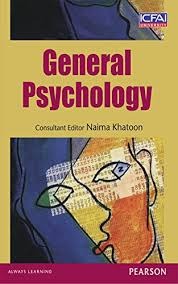
Prof. Naima Khatoon has authored or co-authored six books and published numerous papers in renowned national and international journals. She has supervised fifteen Ph.D. these and many dissertations. Her areas of specialization include Clinical, Health, Applied Social, and Spiritual Psychology. She also served as the Deputy Coordinator for the UGC-assisted Special Assistance Program in Spiritual Psychology at the Department of Psychology, AMU.
Beyond her academic achievements, Prof. Khatoon has extensive experience in educational administration. She has served as Provost of Indira Gandhi Hall and Abdullah Hall on two occasions each. Additionally, she was Deputy Director of the Residential Coaching Academy and Deputy Proctor at AMU. Her involvement with student organizations includes two terms on the Women’s College Student Union, and she has held the positions of Literary Secretary and Senior Hall Monitor at both Abdullah Hall and Sarojini Naidu Hall.
Prof. Khatoon has participated in and presented papers at numerous national and international conferences. She has also delivered lectures at prestigious institutions, including the University of Louisville in the USA, University of Alba Iulia in Romania, Chulalongkorn University in Bangkok, Hollings Centre in Istanbul, Turkey, and the Hollings Centre for International Dialogue in Boston, USA.
These engagements highlight Prof. Khatoon’s commitment to advancing her field and her role in fostering global academic dialogue. Her contributions at these renowned institutions underscore her influential position in the international academic community and her dedication to expanding the impact of her research and ideas.
(The author Dr. Suhaib Ahmad holds a doctorate degree in Arabic from Jamia Millia Islamia New Delhi)
You May Also Like
 EDUCATION
EDUCATIONJamia Islamia Banjari Witnesses a New Chapter in English Oratory
Jamia Islamia Banjari Witnesses a New Chapter in English Oratory EC News Desk 14/07/2025...
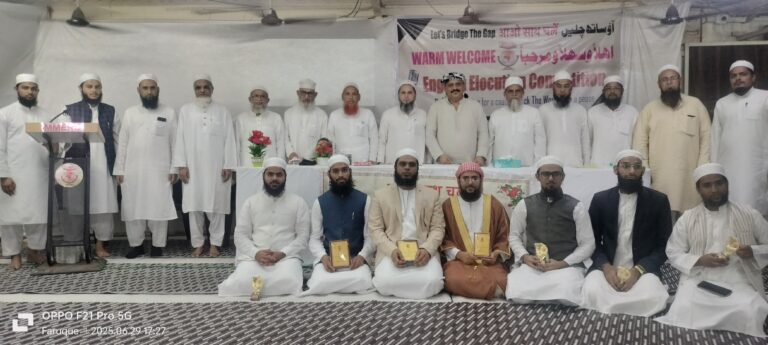 Breaking News
Breaking NewsMMERC Conducts 1st English Elocution Competition of the Academic Year 2025–26
MMERC Conducts 1st English Elocution Competition of the Academic Year 2025–26 "It is extremely...
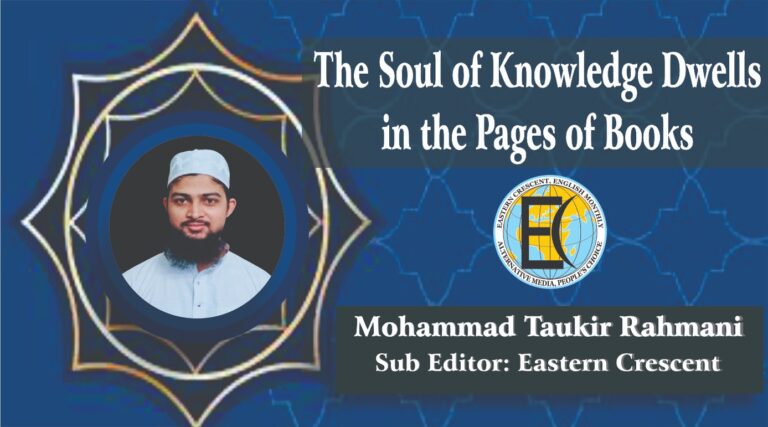 Articles
ArticlesThe Soul of Knowledge Dwells in the Pages of Books
The Soul of Knowledge Dwells in the Pages of Books By: Mohammad Taukir Rahmani...
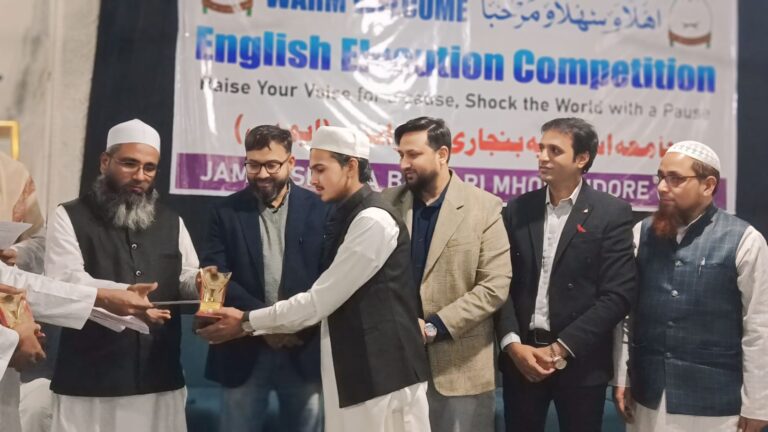 Breaking News
Breaking NewsThe First-Ever English Elocution Competition at Jamia Islamia Banjari, Indore
The First-Ever English Elocution Competition at Jamia Islamia Banjari, Indore EC News Desk 03/01/2025...
 Breaking News
Breaking NewsArabic Elocution Competition Held at Jamia Islamia Banjari
Arabic Elocution Competition Held at Jamia Islamia Banjari EC News Desk 27/12/2024 On 26th...
 Breaking News
Breaking NewsAdmission Opens for English Medium Markaz Online Madrasa
Admission Opens for English Medium Markaz Online Madrasa Mohammad Taukir Rahmani EC Exclusive Markaz...

Comments (2)
Leave a Comment
An AMU Girl Student Brights in the World
Thanks for sharing. I read many of your blog posts, cool, your blog is very good.